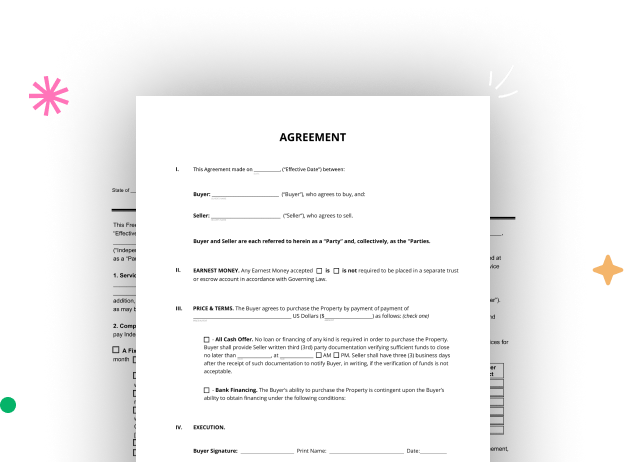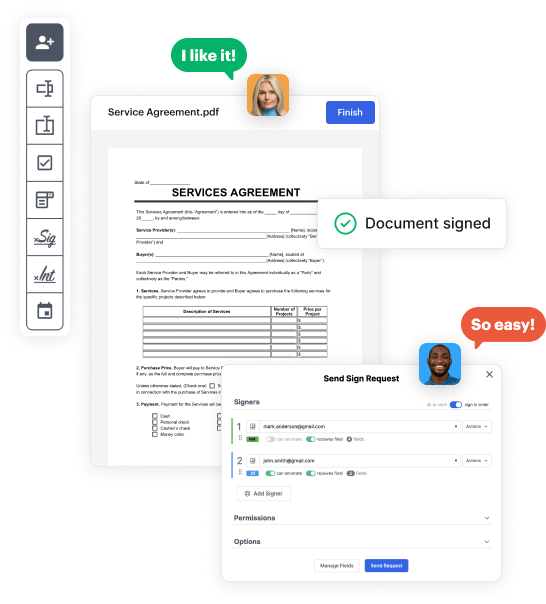

First, log in to your DocHub account. If you don't have one, you can simply sign up for free.
Once signed in, go to your dashboard. This is your primary hub for all document-based tasks.
In your dashboard, click on New Document in the upper left corner. Choose Create Blank Document to craft the Probate Court Legal Document from scratch.
Place numerous elements like text boxes, photos, signature fields, and other elements to your template and assign these fields to intended users as necessary.
Personalize your form by incorporating directions or any other necessary information utilizing the text option.
Meticulously check your created Probate Court Legal Document for any typos or necessary adjustments. Utilize DocHub's editing features to fine-tune your form.
After completing, save your work. You can choose to retain it within DocHub, transfer it to various storage options, or forward it via a link or email.